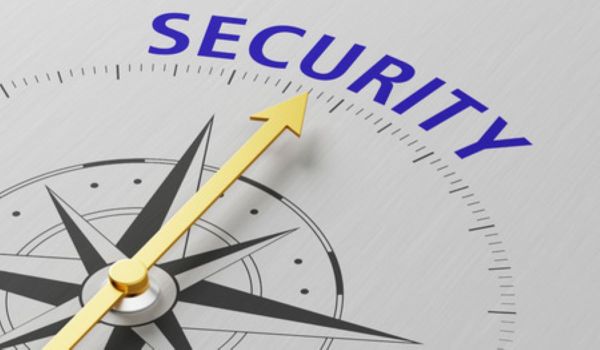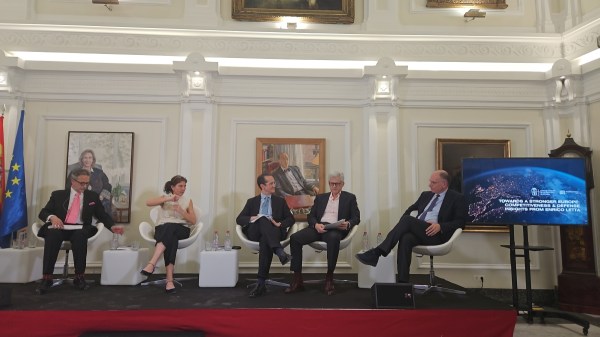We are living through the most profound technological revolution in our history and, after the pandemic, the world has already changed with no way back. Technology is here and it is time for values.
With the restarting of our lives, the European Union has carried out an unprecedented budgetary exercise of solidarity. It has reinforced the European project as a space of values on which to build the future of its citizens. Among its main objectives is the reduction of inequality rates, which have increased substantially throughout the bloc, and new public policies and a shared vision are needed to achieve this.
We know that to defend European values we have to generate economic value. And, at this juncture, our beacon must be Europe’s social and territorial cohesion while decisively boosting the competitiveness of the economy. This can be achieved with the right policies and regulation adapted to the 21st century, creating a level playing field and ending unfair rules and practices between traditional and digital businesses. It is time to set the new rules for this new reality. It is the moment to define a new Digital Deal that sets the rules and rights in the digital space.
In this vein, the European public consultation on the principles needed to translate EU values into the digital world was closed at the beginning of September following the launch of the Digital Decade 2030 initiative. Telefónica contributed to this consultation with its vision and experience in this area. This project aims to establish a set of principles that should define the “European way” for the digital society.
The first principle is digital connectivity because digitalization is synonymous with growth, quality jobs, sustainability, and inclusion. Moreover, countries and companies that do not go digital will lose competitiveness. This is happening all over the world and the European Union is no exception. To be digital or not to be digital, that is the question.
This motto also applies to citizens. We therefore need to ensure that the entire population has access to technology and to the opportunities offered by the new digital world. Connectivity is a necessary condition to allow citizens, public administrations and companies access to the digital world and, therefore, it is essential for the rest of the principles to be achieved.
Telefónica is aware of this need and is highly committed to the development of the best digital infrastructures, as demonstrated by our investment of more than 95,000 million euros in recent years in our markets. Very High Capacity Networks, fibre and 5G are the pillars on which this connectivity is built.
The European Commission, for its part, has set very ambitious connectivity targets in its communication on the Digital Decade: all homes connected to Gigabit networks and all populations covered by 5G by 2030. A goal shared by Telefónica and which it has brought to reality with 5G coverage of 80% of the Spanish population in May this year. In addition, it will make the greatest of its efforts to drive the complete digitisation of Spain: 100% of the copper network will have been replaced by fibre by 2025, and we will lead the implementation of 5G technology. To fulfil this goal, it is essential that sectoral and competition regulation is also geared towards achieving these objectives, favouring investment by operators. Moreover, this regulatory modernisation must be accompanied by initiatives to attract investment in digital infrastructure.
Closely related to this aspect we find the second principle about education and universal digital skills for citizens to actively participate in society and democratic processes. One of the ways to reduce existing social divides is to ensure that everyone has access to technology by investing in digital skills from students to employees.
In a changing labour market, digital skills and training for new professions will be needed to meet the demand for digital jobs. Lifelong learning is a cornerstone for students and workers to be resilient to change, and our greatest ally is new technologies. The digitalization of education enables new learning opportunities, based on the universalisation and democratisation of access to knowledge through the internet. This will promote equal opportunities and lay the foundations for sustainable economic growth.
Another key issue is to make the digital world reliable and secure, so that citizens and businesses can access services with guarantees of security and, above all, with confidence. Cybersecurity is therefore another essential element for digitalization. To achieve this, all elements, both hardware and software, must be secure so security must be a fundamental part of their design. A harmonised European certification scheme is therefore required along the entire value chain. In addition, regulation must be geared towards strengthening the resilience of critical entities, especially in an environment of highly interconnected networks and services.
European digital identity is also a key element in digitalization to facilitate the interaction of citizens and businesses with public services and administration and with each other. Telefónica believes that this digital identity must ensure interoperability and the use of standardised solutions in order to make a real contribution to strengthening the European single market.
The digital principles also include other exciting issues such as the ethical issues we need to consider in relation to algorithms and artificial intelligence, initiatives to make access to digital services environmentally friendly, and special measures for the protection of children.
These seemingly abstract principles will be the source of inspiration for specific regulatory and policy development in the years to come.











